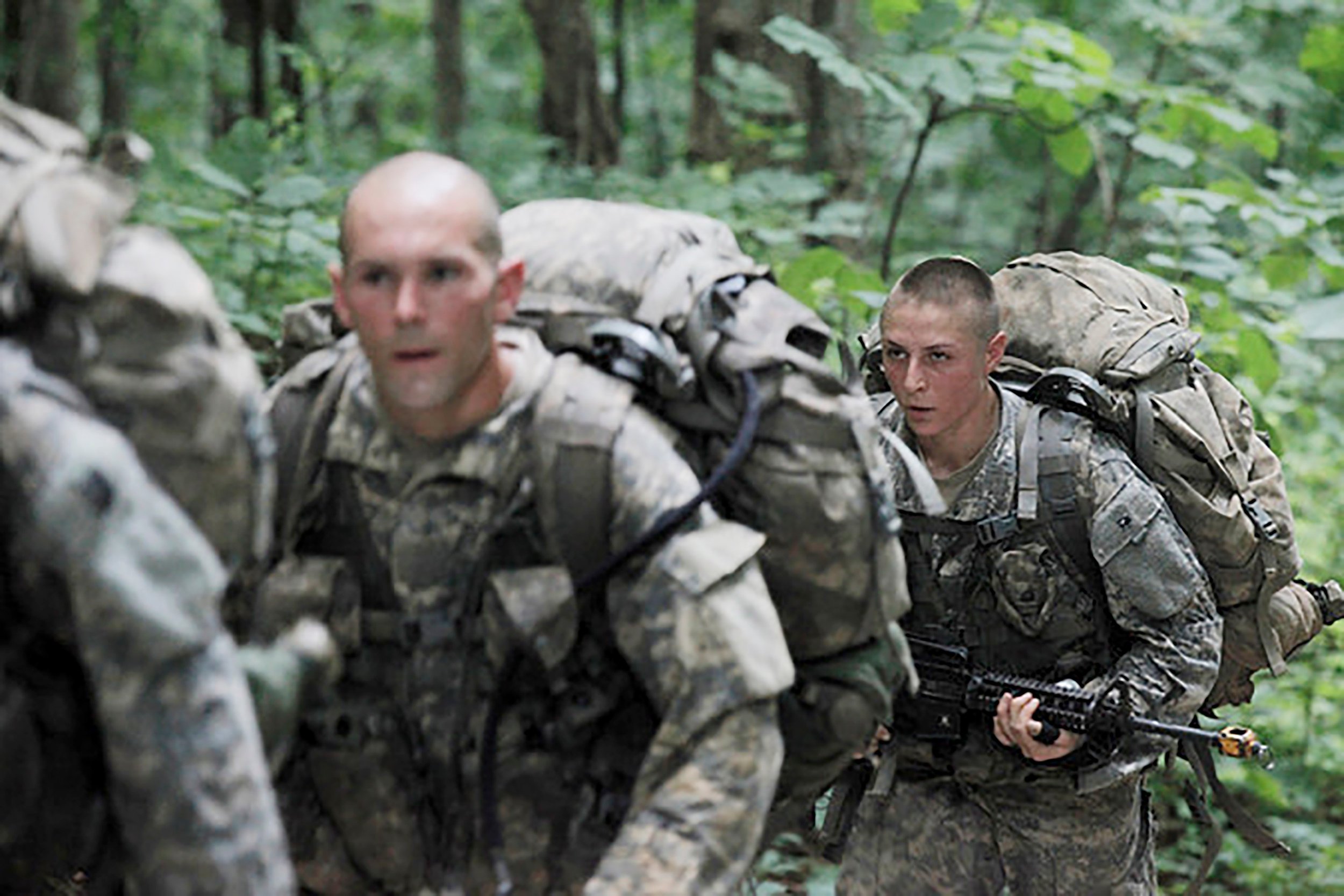Editor’s note: What follows is one in a two-part series of adapted excerpts from decorated veteran and conservative writer James Hasson’s new book Stand Down: How Social Justice Warriors Are Sabotaging America’s Military (Here at Barnes and Noble). The first part covers the intense training required for most Ranger candidates, and how that training was blunted internally by bureaucrats and military officials with an agenda. The second part, posted tomorrow, will cover the military’s response when news began to leak, and how they tried to cover up their malfeasance.
When the first integrated class started on April 19, none of the nineteen female candidates made it through the Darby phase of the course.
Eight were “recycled” back to the beginning of the phase to take a second crack at the course with the next class to show up, which is an entirely normal procedure. None of the eight passed on the second try. Of those eight, three candidates were given a third try but were required to start back at the very beginning and re-do RAP week, in what is known as a “Day One” recycled (as opposed to joining the next class after it completed RAP week, which is how the average recycle usually works).
Getting a third attempt at the course is certainly unusual, but it’s not unheard of. The opportunity is offered on relatively rare occasions to candidates who have performed well in most aspects of the course but struggled with a single test or task. In this particular class, three of the eight female candidates remaining were given a third try, as were two male candidates who had passed RAP week but failed Darby twice. (At this point, it’s worth mentioning two things. First, the two male candidates did not take the offer for a third chance as Day One recycles; all three female candidates did. Second, RAP week consists largely of pass fail physical tests that have objective and essentially unfudgeable metrics of success—you either run five miles within the time limit, for example, or you don’t; you either complete the twelve-mile weighted ruck march on time, or you don’t. Many people don’t pass all those tests even when entering the course for the first time in peak physical condition. The female candidates did, and they did it despite having already been subjected to the exhaustion and malnutrition of Darby Phase twice. Day One recycles are viewed by a lot of candidates as something close to a death sentence for your chances of passing the course for exactly that reason. That the female candidates passed RAP week events under those conditions speaks to their level of physical stamina and conditioning.)
All of the changes I mentioned above led to perhaps the most egregious departure from Ranger School’s normally strict standards: the grading of candidates’ training missions during the course itself. The messages exchanged between RIs in the immediate aftermath of a female graduate’s patrol in the Mountain Phase of Ranger School, reproduced below, are a perfect illustration. The candidate was graded for her performance as the platoon sergeant for a nighttime raid. In non-training environments, the platoon sergeant is the senior enlisted soldier in the platoon, second in rank to the commissioned officer who serves as the platoon leader and, as any honest officer will tell you, second to none in authority. During dismounted operations, one of the platoon sergeant’s primary jobs is to account for all of the soldiers in the platoon, making sure no one is missing or left behind. In Ranger School, that role becomes even more critical at night, when the platoon is moving through dense terrain in the dark. The platoon sergeant will often move to the front of the platoon as it moves in single file and physically tap every soldier who passes. When the final elements of the patrol have passed, the platoon sergeant reports his head count.
Read the rest from James Hasson
HERE.
If you like what you see, please "Like" us on Facebook either
here or
here. Please follow us on Twitter
here.



No comments:
Post a Comment